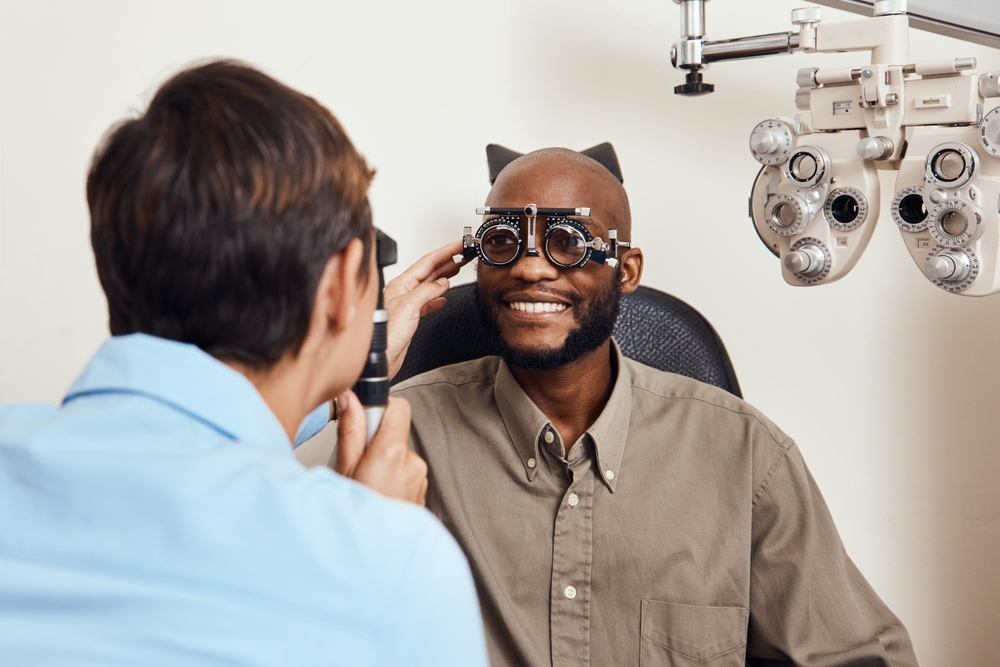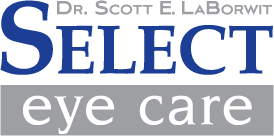Do's and Don'ts of Healthy Eye Care
July 17, 2024
You don't hesitate to schedule an annual check-up with your primary care doctor or think twice about taking your children to see their pediatrician. Caring for your eyes should also become part of your yearly health routine.
Your eyes are the primary sensor for everything that happens around you. They also are sensitive organs that need care.
It is important to protect them from accidental injury or harsh exposure and to make it a habit to schedule check-ups and eye exams with your ophthalmologist. But how do you keep your eyes healthy? Keep reading to learn about the do's and don'ts of healthy eye care!
Why is Eye Care Important?
The most crucial reason eye care should become part of your health routine is to protect your eyesight and ensure nothing is affecting it, such as illness, injury, or disease. There are many common eye disorders that an ophthalmologist can diagnose and treat, including cataracts or vision changes, such as farsightedness or nearsightedness.
An eye exam can also be the first step in detecting other health issues, including high blood pressure or diabetes. Neglecting eye care can result in diminished eyesight and other problems. Making an annual eye exam part of your routine will keep your eyes healthy and can also do its part in helping you stay healthy.
Do's to Follow for Healthy Eyes:
 Rest Your Eyes
Rest Your Eyes
Most people spend their days looking at screens. Whether it's a laptop, a double monitor at work, or scrolling on your phone for hours, all that screen time adds up.
But the problem is that your eyes, like other muscles in your body, need rest. Once you're awake, you rely on your eyes all day, and giving them a break is vital.
Getting enough sleep is vital for your eyes and health. Consider using an app or timer to monitor your screen time and ensure you're taking healthy breaks each day.
Utilize the 20-20-20 rule, where you look at something twenty feet away for twenty seconds every twenty minutes to give your eyes a much-needed break. Use eye drops or artificial tears if your eyes feel dry or irritated while practicing the 20-20-20 rule.
Eat Right
If you heard that carrots are good for your eyes, it's not far off. A healthy diet that includes dark, green, leafy vegetables such as spinach and broccoli and a variety of fruits, including watermelon, offer crucial nutrients and vitamins that are important for good vision, in addition to carrots, squash, cantaloupe, and red and yellow peppers.
Your eyes also benefit from omega-3 fatty acids, which help keep your eyes lubricated and your tears healthy. Avocados, tuna, salmon, and walnuts are some excellent sources of omega-3 fatty acids. If you think you're not getting enough of these vitamins and nutrients, talk to your primary care physician about supplements to stay healthy, including your eyes.
Wash Your Hands
It's tempting to rub and touch your eyes throughout the day, but rubbing them is a bad idea, as it can spread germs, dirt, and grime in and around them. This is especially important for people who wear contact lenses and have to touch their eyes to put their contacts in and take them out daily.
A good habit to develop is washing your hands whenever you put in or take out your contacts. You should also frequently wash your hands throughout the day before touching your face or eyes.
If you have persistent itchiness or eye irritation, schedule an appointment with your eye doctor at Select Eye Care to determine what's causing your symptoms and get the relief you need.
Do You Need an Eye Exam?
Protect Your Eyes
During the summer, it's especially smart to protect your eyes from heat, glare, and sunlight by wearing sunglasses or a hat when outside. Also, take care of what you use in and around your eyes, including face creams, sunscreen, eye drops, and cosmetics.
You must check the labels for expired products that could introduce bacteria into your eyes. Remember to wash your hands before touching your eyes and face.
For screen time, consider using anti-glare screen glasses to reduce eye strain.
Don't Do These Things
If you want to keep your eyes healthy, don't do these things:
Unlimited Screen Time
One of the easiest ways to protect your eyes is to limit your screen time, including using your phone. Unlimited screen time could lead to severe side effects like eye strain, dry eyes, and poor sleep.
Even if your screen is in night mode, your eyes need a break from the glare. Practice limiting your screen time and walking away from screens to give your eyes a break throughout the day; consider using apps that track your time and signal an alarm when it's time to take a break.
Studies have shown that turning off televisions or laptops before bedtime can improve sleep.
Smoking
There's no doubt that smoking is bad for you, but did you know it's also bad for your eyes? Smoking can reduce the body's antioxidants and its ability to fight illness.
It also can add additional stress to the eyes and degrade lens proteins.
Skipping Eye Exams
Having eye exams regularly helps keep your eyes healthy. Eye exams can detect changes in your vision and any eye conditions that may not have symptoms, like cataracts, retinal damage, and macular degeneration.
Skipping eye exams jeopardizes your eyes and their health, especially if you have one of these eye conditions. If you have one, early diagnosis and treatment are crucial to preserve your vision. Eye exams are vital to having a lifetime of good vision.
Treating Your Eyes Badly
You only have one set of eyes, making them crucial to your experience of the world. Protect them with sunglasses outside, use sufficient light for working and reading to avoid eye strain, position your screen 20-24 inches from your eyes, and don't expose your eyes to glare by staring directly at bright lights, sunlight, or other harsh exposures.
Are you ready to make your eyes a priority? Schedule your appointment at Select Eye Care in Elkridge and Towson, MD, today!



